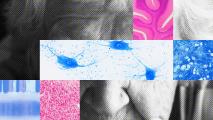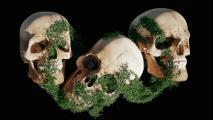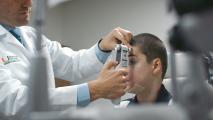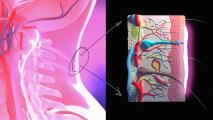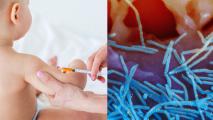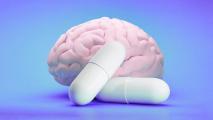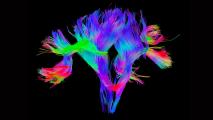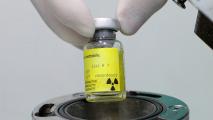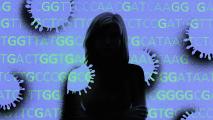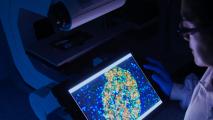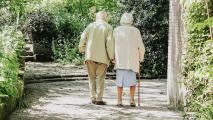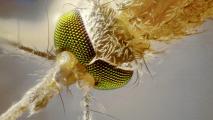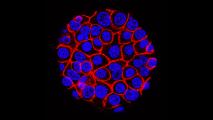
Biotech
Human history has been all but defined by death and disease, plague and pandemic. Advancements in 20th century medicine changed all of that. Now advancements in 21st century medicine promise to go even further. Could we bring about an end to disease? Reverse aging? Give hearing to the deaf and sight to the blind? The answer may be yes. And soon.
More
Two CRISPR treatments for Alzheimer’s ace early studies
Two teams of researchers have used CRISPR to alter the genes of mice to alleviate signs of Alzheimer’s disease.
Almost everyone fears death — but not in the same ways
Fear of death may be the most primal, normal human fear, but it’s one we all experience differently.
First-of-their-kind eye drops reverse blindness in teen
A topical gene therapy designed to heal the wounds of people with “butterfly skin disease” has now been used to reverse blindness.
New clinical trial is testing a ketamine skin cream for PTSD
A topical ketamine treatment designed to alleviate the symptoms of PTSD without causing hallucinations has entered clinical trials.
4 ways to promote neurogenesis in your brain
Research from the 1960s proves creating new neurons as adults is possible, and modern-day research explains how to promote it.
New RSV shot protects babies against dangerous lung infections
The FDA has approved nirsevimab, an RSV shot that protects babies against the leading cause of infant hospitalizations in the US.
ADHD drugs could alleviate symptoms of Alzheimer’s
Scientists reviewed 40 years of clinical studies that assessed the effects of NA-targeting drugs, such as certain ADHD drugs, on Alzheimer’s.
Neuroscience research triggers revision of a leading theory of consciousness
A brain scanning study on unconsciously processed visual information disrupts a leading theory of consciousness: global workspace theory.
Radioactive drugs are transforming cancer treatment
Radiopharmaceuticals allow doctors to directly target patients’ cancer cells and avoid healthy tissue typically damaged by radiation therapy.
Got COVID but felt fine? It may be your genes.
A person’s chances of having asymptomatic COVID are dramatically increased if they possess a certain genetic mutation.
Startup aims to transplant pig hearts into kids in 2024
eGenesis hopes to transplant pig hearts from genetically engineered swine into young children with serious heart defects by 2024.
Fiber is your body’s natural guide to weight management
Fiber is important not just for happy bowel movements, but also for your blood sugar, weight, and overall health.
Exercise may or may not help you lose weight and keep it off
There isn’t a debate on the overall health benefits of regular exercise, but scientists don’t agree on whether it actually keeps weight off.
Aging is complicated – a biologist explains why no two people or cells age the same way
While some people may be older in chronological age, their biological age might be much younger. A biologist explains why.
Natural killer cells now have a better shot at destroying cancer
A 3D-printing-based approach could make immunotherapies based on natural killer (NK) cells better equipped to destroy cancer.
Neuroscience shows that speed reading is bullshit
Speed reading programs claim to teach students how to read more quickly without reducing comprehension. Research shows that they don’t work.
Not all repellents are equal – here’s how to avoid mosquito bites this summer
Researchers studied different types of mosquito repellents and their efficacy for over a decade. Here’s what they found.
A functional cure for brittle diabetes is now available in the US
Islet transplantation, a procedure shown to functionally cure some people with hard-to-control brittle diabetes, has been approved in the US.
New AI predicts who is most at risk of pancreatic cancer
An AI that identifies patients most at risk of pancreatic cancer could lead to earlier diagnosis of the deadly disease.
Viktor Frankl: The doctor who prescribed the meaning of life to his patients
Not having a meaningful life can be dreadful, and one psychologist thought it was the root of many neuroses. His ideas became Logotherapy.
Get inspired with the most innovative stories shaping the world around us.













